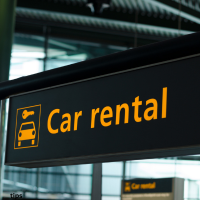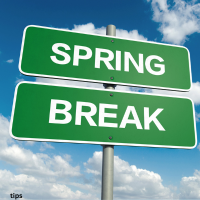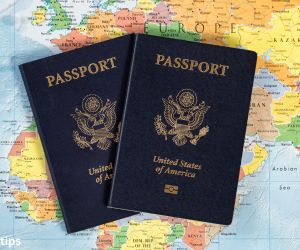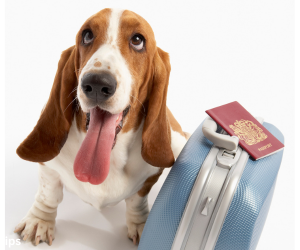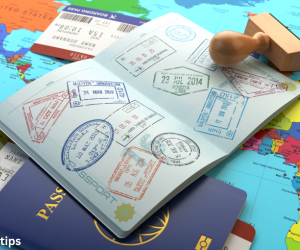Essential Tips Before Your Trip: A Comprehensive Guide for Stress-Free Travel
Planning a trip can be exciting, but it can also be overwhelming if you don’t prepare properly. Whether you’re going on a short weekend getaway, a long vacation, or a business trip, there are several key things to do and think about before you hit the road. From ensuring your documents are in order to packing efficiently, these tips before your trip will help you stay organized, save time, and avoid unnecessary stress.
In this guide, we’ve compiled the most essential travel tips you should consider to make your journey smoother and more enjoyable.
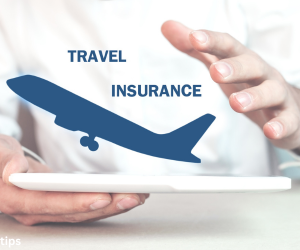
Tips for Travel insurance
Travel Insurance: Why You Need It and How to Choose the Right Coverage
1. Check Your Passport and Travel Documents
One of the most important things you should do before any international trip is ensure that your passport, visas (if applicable), and any other necessary travel documents are in order. Here’s how to prepare:
- Check Passport Expiry: Many countries require that your passport be valid for at least six months beyond your travel dates. Make sure your passport isn’t about to expire. If it is, apply for a renewal well in advance.
- Visa Requirements: Depending on where you’re going, you may need a visa. Research visa requirements for your destination country and apply in plenty of time. Some countries offer eVisas, which can be processed online, while others may require you to visit the embassy.
- Travel Insurance: Consider purchasing travel insurance to protect yourself against unexpected events like trip cancellations, medical emergencies, or lost luggage. It’s always better to have coverage, just in case.
- Photocopies of Important Documents: Make photocopies of your passport, visas, travel insurance policy, and other important documents in case they are lost or stolen. Keep one set of copies with you (separate from the originals) and leave another set with a trusted friend or family member.
2. Book and Confirm Your Travel Arrangements
Whether you’re flying, driving, or taking a train, it’s important to finalize your travel arrangements well before your trip:
- Flights: Confirm your flight details, including departure and arrival times, and check if your flight has any changes or delays. It’s also a good idea to set up flight alerts for any updates.
- Accommodation: Confirm your hotel, Airbnb, or other accommodation reservations. Double-check the check-in time, cancellation policy, and any additional amenities or charges.
- Transportation: If you’re traveling to a foreign country, research transportation options such as local taxis, public transport, or rental cars. If necessary, book your airport transfers in advance.
3. Pack Smart and Early
Packing is a crucial step in preparing for your trip, and starting early can save you from last-minute stress. Here are some tips to help you pack efficiently:
- Create a Packing List: Make a packing list to ensure you don’t forget any essential items. Divide your list into categories like clothes, toiletries, electronics, travel documents, and any special items based on your destination and the purpose of your trip.
- Pack Light: Avoid overpacking by only bringing the essentials. Try to pack versatile clothing that can be mixed and matched, and pack only the toiletries you’ll use on your trip. Packing light will save you time at airports and make traveling easier.
- Prepare for Different Weather: Research the weather at your destination to ensure you pack appropriate clothing. Always be prepared for unexpected weather changes by packing layers, especially if you’re traveling to a place with varied climates.
- Keep Your Electronics and Essentials Accessible: Ensure that items like your phone, charger, passport, and any important documents are easily accessible. It’s helpful to pack them in a carry-on bag or a small, easy-to-reach compartment.
4. Set Up a Financial Plan
Before you leave, take care of your finances to avoid any surprises while traveling:
- Inform Your Bank: Notify your bank or credit card company about your travel dates and destinations to avoid any issues with your cards being flagged for fraud. Some banks may restrict access to your cards if they notice foreign transactions without prior notice.
- Currency Exchange: If you’re traveling abroad, research the local currency and exchange rates. Consider getting a small amount of local currency before your trip for emergencies or small purchases. Many airports also have currency exchange services.
- Travel Budget: Set a realistic travel budget, factoring in accommodation, food, transportation, activities, and souvenirs. Having a financial plan will help you manage your spending while on vacation.
- Travel Money Cards: A prepaid travel card can be a great option for managing your funds without carrying too much cash. Many travel cards offer favorable exchange rates and added security.
5. Plan Your Itinerary and Activities
While spontaneity is great, having a basic plan for your trip can help you make the most of your time at your destination. Here’s what to consider:
- Research Local Attractions: Look up the top attractions, landmarks, and activities in your destination. Create a rough itinerary of the things you’d like to do, but leave room for flexibility to explore on the fly.
- Book Activities in Advance: For popular tours, activities, or shows, it’s a good idea to book in advance to secure your spot. This is especially true for activities that have limited availability or sell out quickly, like sightseeing tours, museum tickets, or amusement park passes.
- Download Useful Apps: Download travel apps that can make your trip easier, such as maps, translation apps, currency converters, or local transportation apps.
6. Prepare for Health and Safety
Maintaining your health and safety while traveling is crucial, and taking a few precautions can help you avoid problems on the road:
- Visit Your Doctor: If you’re traveling internationally, visit your doctor to discuss any required vaccinations and to check if you need any prescriptions for health conditions or travel-related issues, such as motion sickness or allergies.
- Pack a Health Kit: Include any necessary medications, pain relievers, allergy medications, sunscreen, hand sanitizers, and any other health-related products you might need. A small first-aid kit can also come in handy for minor injuries or illnesses.
- Emergency Contacts: Make sure you have the contact information for local emergency services, your country’s embassy, and any other necessary phone numbers handy. It’s also a good idea to have a list of any allergies or medical conditions you may have in case of an emergency.
7. Stay Connected
Staying connected during your trip can be both helpful and comforting. Consider the following:
- Roaming Plans: Contact your mobile provider to inquire about international roaming options. You may be able to add an international plan for the duration of your trip, or consider using a local SIM card in your destination country.
- Wi-Fi Access: Check if your accommodation offers free Wi-Fi or research local cafes or co-working spaces that provide internet access. You can also download offline maps and apps to help navigate without needing an internet connection.
- Share Your Travel Plans: It’s a good idea to let a close friend or family member know your travel plans, including your itinerary and emergency contact information. You can even share your location in real-time with someone you trust using location-sharing features on your phone.
8. Secure Your Home
Before you leave for your trip, take the time to ensure your home is secure and that everything is in order while you’re away:
- Notify Neighbors or Friends: If possible, let a trusted neighbor or friend know you’ll be away so they can keep an eye on your home.
- Stop Mail and Deliveries: If you’re going to be gone for an extended period, request a mail hold through your postal service, or arrange for someone to collect your mail. You should also pause any regular deliveries, such as newspapers or packages.
- Lock Up and Unplug: Make sure all windows and doors are locked, and unplug unnecessary electronics to save energy and reduce the risk of fire.
9. Get Rest Before Your Trip
The excitement of travel can sometimes make it hard to sleep, but it’s important to get a good night’s rest before your trip, especially if you have early flights or long travel days ahead.
Relax: Take some time to unwind before your trip by engaging in relaxing activities such as reading, meditation, or light stretching.
Set a Travel Day Routine: Try to adjust your sleep schedule before your trip, especially if you’re crossing time zones. A few days before your departure, start going to bed earlier or later to match the time zone of your destination.

Tips for Flight
10 Proven Tips for Getting Cheap Flights in 2025: A Budget Traveler’s Guide
Read


